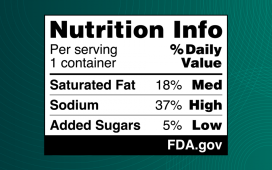Symptoms are unreliable for establishing presence of reflux in patients with minor psychiatric disorders
TUESDAY, June 5, 2018 (HealthDay News) — For patients with minor psychiatric disorders (MPD), symptoms of gastroesophageal reflux disease (GERD) are unreliable for establishing the presence of GERD, according to a study presented at the 2018 Digestive Disease Week, held from June 2 to 5 in Washington, D.C.
Rafael Laurino Neto, M.D., from the Federal University of Sao Paulo in Brazil, and colleagues conducted a prospective study involving 222 patients with suspected GERD to examine the influence of MPD in the diagnosis of GERD (57 percent GERD+ and 43 percent GERD−). All patients underwent pH monitoring and MPD evaluation based on the Hospital Anxiety and Depression Scale (HADS), focusing on anxiety and depression.
The researchers found that the mean DeMeester score was 44 ± 33 for GERD+ and 7 ± 4 for GERD−. For GERD+ and GERD−, the mean HADS scores for anxiety (8 for both; P = 0.2) and depression (5 and 6, respectively; P = 0.3) did not differ significantly. There was no correlation for DeMeester score with total HADS score, or the anxiety or depression domains (P = 0.9, 0.7, and 1, respectively). There was no correlation for HADS and GERD diagnosis in subanalysis including only patients with extra-esophageal symptoms.
“Almost half of the patients with MPD and a clinical diagnosis of GERD have a normal esophageal acid exposure by pH monitoring,” the authors write. “As symptoms are unreliable for establishing the presence of GERD, objective evidence of the presence of pathologic reflux should be present before initiating treatment.”
Abstract No. 659
Copyright © 2018 HealthDay. All rights reserved.








